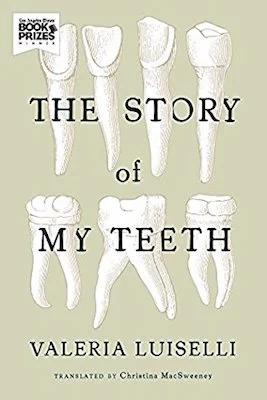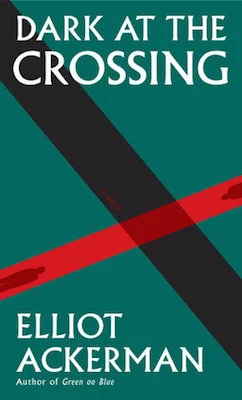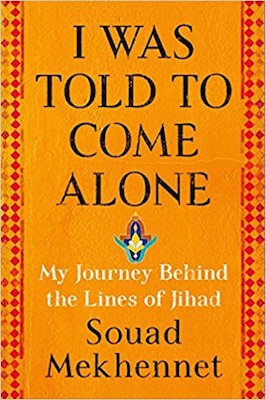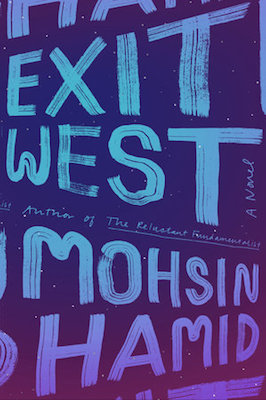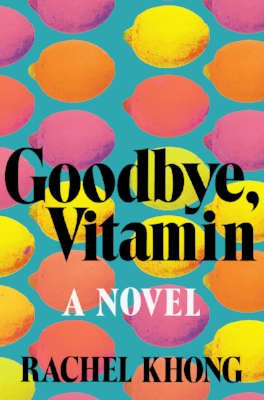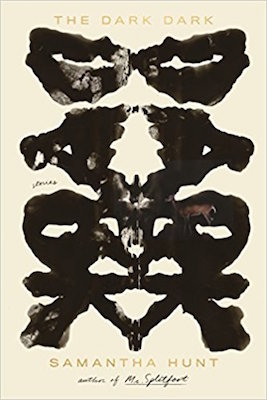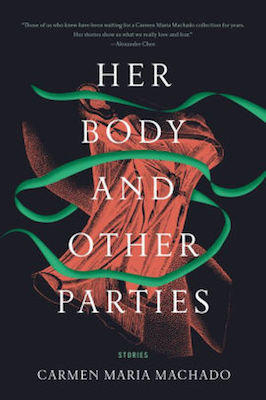The 35 Best Books of 2017
By Daniel Ford
2017 was a remarkable year for fiction and nonfiction. From fearless debut novelists to established literary veterans at the top of their games, authors provided the artistic tonic we needed to survive a turbulent time both politically and culturally.
Narrowing down a reading list of 116 titles to just 35 was torture. The final grouping you’re about to read (and judge) could have easily been expanded to include 50 to 60 books. Please feel free to debate my choices and add your own in the comments section or tweet us @WritersBone.
As always, keep reading everyone!
35. Smothered by M.C. Hall
Megan Cassidy Hall deserves a writing award for the faux-comments section alone. Her epistolary exploration of a sensational crime, and how society reacts to it, is both haunting and incredibly sad.
34. Found Audio by N.J. Campbell
I still have this trippy, mind-bending novel in my head. You’ll question your own reality after reading this, but you won’t question N.J. Campbell’s talent.
33. Marcel’s Letters by Carolyn Porter
In a year when we desperately needed as many genuine love stories as possible, Carolyn Porter delivered a great one. Her hunt for the truth behind a World War II survivor’s letters led to a splendid and deeply personal read (as well as a beautiful font!).
32. Apollo 8 by Jeffrey Kluger
Jeffrey Kluger’s return to the Apollo missions provided 2017 with the same burst of hope that Apollo 8 gave 1968 (one of the most turbulent years in American history). A thrilling narrative featuring the crew of Apollo 8 that reminds you of what Americans are capable of when reaching for the same stars.
31. Blurred Lines by Vanessa Grigoriadis
Vanessa Grigoriadis’ curious and wide-ranging reporting in Blurred Lines warmed my journalist soul even while making my skin crawl. Sexual assault on campus remains a complicated, serious issue, and, judging by Grigoriadis’ revelations, will continue to be one until colleges and universities make even more substantial changes to their policies and punishments.
30. An Unkindness of Magicians by Kat Howard
There’s not a bad sentence in this book. Kat Howard should be a household name. She makes you care deeply for all of her characters—even the evil ones—as she’s putting them all through (magical) hell.
29. The Weight of This World by David Joy
David Joy is the poet of broken characters. He gets better and better with every novel. The Weight of This World puts a hole through your heart with a shotgun and uses bourbon to salve the wound.
28. The Last Ballad by Wiley Cash
Ella May Wiggins lives in the past, but would be right at home fighting against our current political demagogues. She’s a reluctant rebel, one driven to protest in order to feed her starving family. A finely drawn supporting cast experiences the novel’s tragic events through myriad personalities, racial identities, and disparate classes. Urgent historical fiction of the highest order.
27. Days Without End by Sebastian Barry
Still amazed at the answers Sebastian Barry gave during our podcast interview earlier this year. He combined his love of the American Civil War stories and his son to deliver a truly remarkable western.
26. The Lost Prayers of Ricky Graves by James Han Mattson
A powerful read about the aftermath of a terrible tragedy perpetrated by a lost and confused teenager. No one comes off looking particularly well in this narrative, told in part through email chains and online chats, but it’s that broken humanness that makes The Lost Prayers of Ricky Graves so devastating and gripping. Top-notch writing.
25. Home Fire by Kamila Shamsie
The first chapter alone should win some kind of literary prize. It sets the tone of the novel and feels so immediate considering the political climate in the United States and around the globe. And that ending…so good!
24. The Story of My Teeth by Valeria Luiselli
The Story of My Teeth further cements Valeria Luiselli as one of the most important voices in fiction and nonfiction. Read this and everything else she’s written.
23. American War by Omar El Akkad
American War is a cautionary tale that seems more and more realistic with each passing day. It’s a visceral, brutal thriller that peels apart the many layers of American dysfunction and partisanship.
22. The Animators by Kayla Rae Whitaker
Mel Vaught and Sharon Kisses were two of my favorite main characters in 2017. Whitaker puts them through hell (some of it self-inflicted), but never leaves them completely hopeless. Author Julie Buntin called this novel “goddamned brilliant” in June’s “Books That Should Be On Your Radar,” and she’s 100% goddamn right.
21. What It Means When A Man Falls From the Sky by Lesley Nneka Arimah
Lesley Nneka Arimah’s short story collection is masterful. I had so much fun listening to Levar Burton read the title story on his podcast "Levar Burton Reads," and then hearing Arimah talk about the collection on a later episode.
20. Hum If You Don't Know the Words by Bianca Marais
Bianca Marais’ storytelling is so mesmerizing that you’ll constantly mutter, “Just one more chapter…” while reading the novel. Robin and Beauty don’t have it easy for much of the narrative, but they’re equal parts fragile and flinty throughout the narrative. Marais’ sparkling debut explores everything from race relations to familial bonds.
19. The Force by Don Winslow
How do you follow up The Cartel, one of the best novels written about the ongoing drug war in Mexico and the Southern United States? If you’re the master of crime fiction, you write The Force, a gripping thriller about a corrupt cop in New York City. A master class in dialogue and plot.
18. The Refugees by Viet Thanh Nguyen
Viet Thanh Nguyen won the Pulitzer Prize for The Sympathizer (#2 on last year’s list), and followed it up with an equally compelling, earthy, and poignant short story collection. He’s rightly become an essential voice on the literary scene.
17. Dark at the Crossing by Elliot Ackerman
It’s been such a joy following Elliot Ackerman’s career as a journalist and novelist. His debut Green on Blue was one of our favorite novels in 2015, and his stellar sophomore effort, Dark at the Crossing, was nominated for this year’s National Book Award.
16. I Was Told To Come Alone by Souad Mekhennet
I Was Told To Come Alone is an extraordinary memoir about a life in journalism. Souad Mekhennet’s journey from inquisitive child to fearless reporter tasked with communicating with jihadists is impossible to forget. Her final chapter is a call to arms for journalists and global citizens alike.
15. The Mothers by Brit Bennett
This is the first book I read in 2017, and it really set the bar high. Bennett’s wisdom and verve are evident on every page. I found myself falling in love with the characters all over again revisiting the novel for this post.
Note: The Mothers was published late in 2016, but I read it in January 2017 so I'm counting it for this year's list. It's my post, I can do what I want!
14. Salt Houses by Hala Alyan
I loved how Hala Alyan structured her debut novel. She wrote from multiple characters’ perspectives and jumped forward several years in the timeline throughout the book. This allowed her to explore themes like the aftermath of war and the development of familial relationships in a really heartfelt way. Her dialogue sang like poetry.
13. Sirens by Joshua Mohr
Joshua Mohr’s fiction is defined by brutal honesty. He upped the stakes by telling his own sordid (Mohr’s adjective of choice) tale. Make sure you listen to Mohr read from a section in Sirens (sure to elicit both laughter and tears) from our live event at Porter Square Books earlier this year. Very much looking forward to the follow up Model Citizen!
12. Stephen Florida by Gabe Habash
I finished Gabe Habash’s insanely well written debut in one sitting. Spending time in Stephen Florida’s head was like sitting on top of a runaway freight train.
11. Mrs. Fletcher by Tom Perrotta
The only thing I enjoyed more than this steamy satire was discussing it with Dave Pezza for #NovelClass. I loved the way Perrotta depicted his middle-aged female lead and how he crafted her eclectic supporting cast.
10. Marlena by Julie Buntin
As you’ve probably noticed, I’m a sucker for coming-of-age stories. Julie Buntin’s Marlena is one of the best ever written, and one that makes me want to up my writing game. It’s been rightly feted all year, and I’d love to see this story on screen.
9. Exit West by Mohsin Hamid
“Moving,” “romantic,” “tender,” and “violent” are all words I used to describe Exit West back in March. One of the central questions Hamid attempts to answer is, “Can new love blossom and survive in a war zone?” His answers are as poetic as they are heart breaking. And it all starts with this stellar opening line: “In a city swollen by refugees but still mostly at peace, or at least not yet openly at war, a young man met a young woman in a classroom and did not speak to her.”
8. Little Fires Everywhere by Celeste Ng
Celeste Ng has no rival when it comes to crafting characters. Those that populate Little Fires Everywhere are deliciously damaged. Tangled small town drama has never been this illuminating.
7. Sing, Unburied, Sing by Jesmyn Ward
Jesmyn Ward’s National Book Award-winning Sing, Unburied, Sing has its own heartbeat that you feel through its spine. All the ghosts that her characters are living with feel like they’re right next to you as you read.
6. Lucky Boy by Shanthi Sekaran
Soli, one of Lucky Boy’s main characters, is one of the most memorable, tough, and fierce mothers in fiction. You’ll find yourself rooting just as hard for her brilliant counterpart Kavya. Between them is a young boy unaware of the passionate struggle to claim him on both sides of the U.S.-Mexican border. I read this early in 2017 when the first of President Trump’s Muslim bans was enacted. It was a powerful read then, and remains one now in the face of continued xenophobia and discrimination.
5. Spaceman of Bohemia by Jaroslav Kalfar
Deep space, an astronaut tortured by the romance he left behind, and a spider that may or may not be imaginary. What’s not to love? Plus, my favorite cover of the year (not biased at all by the giant coffee cup)!
4. Goodbye, Vitamin by Rachel Khong
I’m still amazed that Rachel Khong packed so much heart, humor, and human themes into such a short novel. Khong is one of my favorite risk-taking debut novelists.
3. What We Lose by Zinzi Clemmons
Speaking of risk-takers, Zinzi Clemmons wrote an innovative, emotionally devastating novel that I continually re-read to get inspired. She’s a must-follow on Twitter as well.
2. All Grown Up by Jami Attenberg
I, perhaps unfairly, have compared every book I’ve read in 2017 to Jami Attenberg’s flawless All Grown Up. Attenberg told me in a podcast interview earlier this year that she wanted to “write something funny and contemporary, and loose and bittersweet.” She succeeded on all levels. This novel will be on my annual re-read list for years to come.
1. Pachinko by Min Jin Lee
Epic in scope and passionately written, Pachinko has been my number one since the day I started reading it. Min Jin Lee is a treasure. “History has failed us, but no matter,” my favorite opening line of 2017, still gets me.
Honorable Mention
Setting Free the Kites by Alex George, The River of Kings by Taylor Brown, Unsub by Meg Gardiner, What We Build Upon the Ruins by Giano Cromley, The Impossible Fortress by Jason Rekulak, Garden of Lost and Abandoned by Jessica Yu, She Rides Shotgun by Jordan Harper, The Wanderers by Meg Howrey, The Good Assassin by Paul Vidich, The River at Night by Erica Ferencik, Exit Strategy by Steve Hamilton, Trajectory by Richard Russo, Fierce Kingdom by Gin Phillips, Have You Met Nora? by Nicole Blades, White Fur by Jardine Libaire, Colorado Boulevard by Phoef Sutton, Hollywood Homicide by Kellye Garrett, Borne by Jeff VanderMeer, My Absolute Darling by Gabriel Tallent, Strange Weather by Joe Hill, In the Distance by Hernan Diaz, The Names of Dead Girls by Eric Rickstad, One of the Boys by Daniel Magariel, Wedding Toasts I'll Never Give by Ada Calhoun
The 10 Best Short Story Collections of 2017
By Adam Vitcavage
George Saunders, the 21st century master of short stories, looks for a sense of a human being on the other side of the page. He says short stories are very hard work and oftentimes people hide behind showmanship or tricks to make a story impactful in such a short page count. He mastered these stories over his long career and released them as a collection in 2013. Saunders reached the pinnacle of the art form. This year, he finally released his follow up—only it was a debut novel. Only it was a debut novel instead. A debut that happened to win the Man Booker Prize, by the way.
This year, there was a general consensus on what were some of the best collections. Pulitzer Prize-winning author Jeffrey Eugenides released his first collection. As did Joshua Ferris. Haruki Murakami released his fourth collection translated into English. Hell, even two-time Best Actor Oscar winner Tom Hanks released a terrific collection.
Here are 10 collections—some that have been consensus crowd favorites and some under-the-radar ones—that I felt were the best this year.
The Man Who Shot Out My Eye Is Dead by Chanelle Benz
This collection of short stories succeeds in creating visceral voices over the course of centuries. Chanelle Benz is able to engage readers with invigorating stories from a 16th century monk to a 19th century baroque piece narrated by a chorus of We. "The West of Known,” the opening story, garnered Benz a lot of recognition when it was first published in The American Reader. The story earned her an O. Henry Prize and is an astonishing piece to introduce yourself to her writing. "James III" is a modern piece about violence and family that is narrated from the perspective of a high school freshman in Philadelphia. However, what stands out about Benz's writing is not the thought provoking plot; instead, it is the voice she is able to give James. He feels so real. So do all of her other narrators. Each one is a unique human who really lived. They're not just characters in a short story collection.
The Dark Dark by Samantha Hunt
In her debut collection, Hunt uses her ability to deconstruct the norm by creating lush worlds in a few paragraphs and then flipping it upside down. Metamorphosis, from the literal to figurative, is prevalent throughout these stories. With these changes, she explores womanhood in a roundabout way. A subtle, and peculiar, story involves a woman turns into a deer at night. A more upfront one would be a woman wondering why she and her husband haven’t had sex in nearly a year. Either way you go, Hunt is onto something eerily familiar, but wholly original.
Her Body and Other Parties by Carmen Maria Machado
Off-kilter stories about what it means to be female are a welcome trend. This collection uses hints of reworked fairy tales as a lens to view what society has to say about feminism. One story has a character who can hear porn stars thoughts. Another asks if being a female writer writing about a female writer is a tired trope. One is about sexual history. Through and through, this collection is so enthralling because it has drop dead gorgeous writing. A plot summary only goes so far. It’s the writing that makes this collection so remarkable.
Things We Lost in the Fire by Mariana Enriquez
Enriquez’ stories are vibrant depictions of her native Argentina, mostly Buenos Aires, though she also ventures out to surrounding countries. She fills the dozen stories with compelling characters in haunting stories that evaluate inequality, violence, and corruption. Characters range from social workers to street dwellers—even dark magic users. With those characters, the author explores tourists in Argentina, the rich visiting the slums, plus so many more dynamic areas of her home country.
What it Means When a Man Falls from the Sky by Lesley Nneka Arimah
In tradition with the likes of Chimamanda Ngozi Adichie and NoViolent Bulawayo, this collection features well-crafted and vibrant stories about being black in America while still holding onto roots in Africa. These stories are all nearly about that specific idea, but never feel stale. Throughout the different stories, we meet a wide-ranging spectrum of characters in a variety of settings. Still, she brings a cohesion to the stories that make them feel connected, even though they all stand alone.
The Refugees by Viet Thanh Nguyen
Nguyen’s stories focus on mostly Vietnamese refugees whose stories take place from the 1970s through present day. Some do take place in Vietnam, however, most of the stories take place in America. Nguyen taps into the daunting reality refugees faced in America, but balances the haunting trauma with the beautiful humanity extremely well. None of the stories are necessarily autobiographical. They were influenced by Nguyen’s own experiences as well as what happened to his friends and family. This is important because it is vital to remember where refugees in America came from and what they accomplished. This is one of the most vital books released so far in 2017.
Sour Heart by Jenny Zhang
Using a thread to connect all the stories in a connection can be tricky. You don’t want each story to get stale. Zhang sets her stories mostly in Queens, focusing on the daughters of Chinese immigrants. Zhang uses very direct, in-your-face prose that is tough to swallow at times. She wants you to experience the rawness that these girls have to face every single day. It makes for an obscene collection you wince at, but in a good way.
The King is Always Above the People by Daniel Alarcon
Stories of migration and the toll it takes on families are the centerpiece of this collection. Most of the stories take place in anonymous Latin American cities, which really helps focus on the characters. These people can be anywhere. Alarcon adds flourishes to his stories, never letting them seem as earnest as they appear. He twists and turns until we learn more about the characters in a handful of pages than some authors portray in entire novels.
Difficult Women by Roxane Gay
In Bad Feminist, a collection of essays, Roxane Gay wrote eloquently about race, feminism, and poverty in an accessible way. She continues to use her strong voice in this collection of short stories that take those same themes and weaves them into stories of resilience and power. She avoids stereotypes within character development as well as plot. Her stories truly reflect modern America through the lens of black women. It is an invigorating read that is eye opening and enlightening.
Swimmer Among the Stars by Kanishk Tharoor
Tharoor is preoccupied with language. His stories want to make sense of what we are saying and how we are saying it. Technology plays a heavy role. But don’t be fooled! This isn’t science fiction. It’s an influence for sure, but these stories have a foot in the normal—even the mundane—while the other foot dips into the fantastical. He’s a stylish writer with plenty left to showcase.
The 10 Best Books of 2017 (So Far)
The first half of 2017 brought an onslaught of so many terrific novels and short story collections, ranging from newcomers fresh off of getting their MFAs to the master of short stories finally releasing a novel. Then there were translations of beautiful work that introduced Americans to incredible writers from places like Argentina and France. Needless to say, regardless of what type of fiction you like, there was something for you to devour in the past six months. Here are 10 I read, couldn’t stop thinking about, and continually suggest to friends, families, and strangers.
One of the Boys by Daniel Magariel
An unnamed boy narrates the story about his father’s journey after a divorce. The boy and his older brother have been told countless times how evil their mother is. However, it turns out that the father is an addict and it’s all his fault. That’s the basic premise of Daniel Magariel’s debut. However, that doesn’t do the book justice. His novel is written with such heaviness in such a short amount of pages. He doesn’t waste time, and though your read can be over in less than a day, the content will stay with you long after.
Read my interview with the author.
The Man Who Shot Out My Eye is Dead by Chanelle Benz
Finding a distinct voice is the first benchmark any great writer must accomplish. Chanelle Benz, author of The Man Who Shot Out My Eye Is Dead, has created more than just a voice to stand out from the crowd. She’s created 10.
The stories in Benz’s debut collection are told from perspectives ranging from an eighteenth-century slave to a baroque-style piece told in the collective We. The book begins with a non-traditional western that pulls readers in close, then follows up with a contemporary story of family and violence that is just as gripping. It’s not just the wide-ranging eras and plots that make each story stand out; it’s the carefully crafted voices. Benz is a trained actress who learned presentation is everything when it comes to captivating an audience, and she translated that skill into her writing.
Read my interview with the author.
American War by Omar El Akkad
This literary speculative fiction is one I keep thinking about over and over. It’s set in 2074-2095 and there’s another American Civil War. A young girl sees the horrors of life and grows up fighting. The steps Sarat takes in life can be viewed as heroic or villainous. This book follows her arc from innocent child to what a human can be turned into during a time of war.
Homesick for Another World by Otessa Moshfegh
Eileen, Otessa Moshfegh’s debut novel, was one of 2015's best books. Even though her current short story collection was highly anticipated, it somehow sneaked up and surprised me. It’s filled with 14 bleak stories about offbeat loners, liars, and less-than-perfect people. The writer's grip on these unsteady characters is stellar; she never makes a farce of their desires. Even though she pushes the boundaries with expectations, the fringe-ness of Moshfegh’s stories are reeled back in by the protagonists. Expect the unexpected, as cliché as that sounds.
Lincoln in the Bardo by George Saunders
George Saunders is already one of the most prolific writers of this generation. His short stories have captivated the world for two decades. Since the release of his first collection, CivilWarLand in Bad Decline, in 1996, Saunders has published numerous books of prose, including the 2013 critical darling Tenth of December. This year, we finally have his first full-length novel, Lincoln in the Bardo. It’s the type of book only a master craftsman like Saunders could pull off.
The story, which tracks President Abraham Lincoln on a visit to the grave of his recently deceased son, is narrated largely by ghosts in the cemetery. At 60,000 words, this isn’t a traditional novel by any means. Expect to be tested by the writer’s prose and style.
Read my interview with the author.
Black Moses by Alain Mabanckou
Technically this book may have come out in 2016, but the English translation came out recently and I devoured it. The French language is beautiful, but the prose is still gorgeous in this story. Tokumisa Nzambe po Mose yamoyindo abotami namboka ya Bakoko a/k/a Moses grows up in an orphanage and turns to life in the underground crime world of the 1970s and 1980s.
Things We Lost in the Fire by Mariana Enriquez
Enriquez’ stories are vibrant depictions of her native Argentina, mostly Buenos Aires, as well as some ventures to surrounding countries. She fills the dozen stories with compelling characters in haunting stories that evaluate inequality, violence, and corruption. Characters range from social workers to street dwellers and even venture into dark magic users. With those characters, the author explores tourists in Argentina, the rich visiting the slums, and so many more dynamic areas of her home country.
Read my interview with the author.
No One is Coming to Save Us by Stephanie Powell Watts
The characters’ desires in this novel purposefully echo the ones from F. Scott Fitzgerald’s classic The Great Gatsby. The parallels between the two works themes are obvious, but do not go into this thinking it's a retelling. Watts has crafted her own world built on rich characters and eloquent prose.
Read my interview with the author.
What It Means When a Man Falls from the Sky by Lesley Nneka Arimah
It’s mesmerizing what Arimah can do with a seemingly traditional idea and stretch it into something distinct. Stories include a generational tale about ghosts of war, a father’s attempts to protect his daughter, a woman desperate for a child, and more. However, there is much more to these stories than a simple fragmented synopsis. For instance, the mother who wants a child weaves one out of her hair. Get ready to be wowed by these stories.
Marlena by Julie Buntin
When high schooler Cat meets Marlena, her world changes. She experiences a series of firsts thanks to her new friend, but then Marlena ends up dead. This leaves a lasting mark on Cat and the story shifts from that year to decades later. Half of the novel is an ace coming-of-age story. The other enlightens readers on what happens after.
16 Books That Should Be On Your Radar: April 2017
Every month, the Writer’s Bone crew reviews or previews books we've read or want to read. This series may or may not also serve as a confessional for guilty pleasures and hipster novels only the brave would attempt. Feel free to share your own suggestions in the comments section or tweet us @WritersBone.
Faces in the Crowd by Valeria Luiselli
Daniel Ford: Of all the Valeria Luiselli titles author Josh Cook recommended during our live podcast at Porter Square Books, of course I would choose the one with the F train on the cover.
Subway aesthetics aside, Luiselli’s inventive and trippy debut novel is everything you want in a genre-bending story. Is the main character the young woman navigating New York City while championing an obscure Mexican poet? Or is it the poet himself, a man in search of himself while destroying his family? Or, better yet, is our hero a mother juggling her matriarchal and literary responsibilities (while her marriage seemingly slips through her fingers)?
The more I read this novel, the less I cared about any of those questions. Reading Luiselli’s perfect sentences and reveling in the scenes (both large and small) she built was reward enough. Whether it was a Harlem sidewalk, a family’s home, a subway platform, or a character’s daydream, Luiselli crafted a world that felt intimate, lived in, and familiar.
I have more of her oeuvre to catch up on, but if this is the kind of work I can expect, then I’m going to have to revisit my upcoming reading list. There’s also a good chance Luiselli becomes a staple on “Books That Should Be On Your Radar.”
An Exaggerated Murder by Josh Cook
Daniel: Speaking of Josh Cook…
It was a real treat to sit down and pick his brain a couple weeks ago (along with Sirens author Joshua Mohr) about his writing process and his reading recommendations.
Like most trips to Porter Square Books, it ended with me walking out with an armful of fiction. The best part was Cook signed my copy of his novel An Exaggerated Murder and used a plethora of profanity.
I wasn’t surprised when the novel turned out to be a smart, fresh take on the detective genre. Cook’s characters are wonderfully flawed, earnestly eccentric, and hopelessly rationale in the face of a “stupid crime.” The pages start flying immediately, but make you take some time and truly appreciate the craftsmanship that went into this novel. We can’t wait to read what Cook writes next!
(P.S. The author will graciously sign a copy of the book provided you order it from Porter Square Books. Profanity costs extra.)
No One is Coming to Save Us by Stephanie Powell Watts
Adam Vitcavage: The Great Gatsby is one of the most read books in all of American literature. For better or worse F. Scott Fitzgerald’s novel has been a cornerstone of what the American Dream is and what it can do to people. Stephanie Powell Watts’ No One is Coming to Save Us is a profound novel that explores the similar themes Fitzgerald's classic work laid out.
Make no mistake, this isn't merely a retelling of the Jazz Age classic; it is unique and only borrows Gatsby’s mindset. Set in North Carolina, Watts’ novel is about a man returning home to build his dream house to woo his long lost love. Unlike Gatsby, this novel explores America through African-American eyes, and we see factories crumbling and Jim Crow still lingering.
Watts’ prose eloquently takes us on a journey of loss and hope. What stands out even more than her beautiful writing is her rich characters that are some of the most memorable of recent years. Make no mistake, this book deserves to be taught in high schools as much as any other right now.
The Wanderers by Meg Howrey
Daniel: When astronauts reach for the stars, who gets left behind on Earth? That’s the essential question Meg Howrey explores in her recently published novel The Wanderers.
Let me set the scene before I delve into this book’s eclectic cast of characters. A trio of astronauts is handpicked by a private space company to train for a potential mission to Mars. If all goes well, the group goes to Mars. If not, who knows. As thrilling as that sounds, and it is despite some of the monotony the space “wanderers” face, their thoughts are more tied to Earth than ever before in their career.
Everyone in this novel is searching for something, and likely nowhere close to finding it. Helen, a weathered, super-competent veteran of the U.S. space program who is much more at home in the cosmos, struggles to push away thoughts of her sad adolescence and loveless marriage. Her dramatic daughter “Meeps” grieves over the freak death of her father while also fearing for her mother’s safety, finding acting success, and developing a relationship in an unexpected place. Dmitri, whose astronaut father Sergei provides both comic relief and mild paranoia, unconventionally explores his sexual identity. And Yoshi, the crew’s third member, battles his own tortured past while also trying to emotionally connect with his distant, yet equally brilliant wife, Madoka.
That sounds like a lot of characters to juggle in one novel, but Howrey shifts perspectives so subtly and smoothly at exactly the right moments that you won’t have trouble keeping up with the novel’s events. If you’re anything like me, you’ll finish the last pages and think, “Wait, that’s it? I want more!” Trust me, do yourself a favor, spend some time with your head in the stars and read this book.
What it Means When a Man Falls From the Sky by Lesley Nneka Arimah
Adam: So far, 2017 has seen an incredible amount of short story collections. Add Lesley Nneka Arimah’s What it Means When a Man Falls From the Sky to that growing list. Familial connections tie these stories together, but stylistically the stories vary from sort of science fiction to modern realism.
It’s mesmerizing what Arimah can do with a seemingly traditional idea and stretch it into something distinct. Stories include a generational tale about ghosts of war, a father’s attempts to protect his daughter, a woman desperate for a child, and more. However, there is much more to these stories than a simple fragmented synopsis. For instance, the mother who wants a child weaves one out of her hair. Get ready to be wowed by these stories.
The Whore's Child by Richard Russo
Daniel: “Just one story,” I told myself. “You have a reading list a mile long and the third season of ‘Grace and Frankie’ just dropped on Netflix. You don’t have time to read more than one story.”
Well, not for the first time, I lost an argument with myself and ended up reading every story in Richard Russo’s short story collection The Whore’s Child in 24 hours. Also not surprising, Russo’s empathetic—and often hilarious—style translates beautifully to the shorter storytelling format.
The real stand out in the collection is the eponymous “The Whore’s Child.” The story features an older nun who crashes a creative writing class and slowly realizes a painful family truth while writing a “fictional” memoir. The story shamelessly fiddles with your heartstrings, but it also offers biting meta-commentary on the writing process. Paired with Luiselli’s collection, The Whore’s Child should give you all the literary inspiration you need to craft your own short stories.
The Stand by Stephen King
Mike Nelson: The Stand is much more than a prerequisite to Stephen King’s Dark Tower series, though that’s the catch that influenced me to dive in last summer (really hope my brother wasn’t lying to me about that, though it’d be a great prank). Yes, I wrote, “last summer,” and, yes, I know this column is meant to focus on books you recently read...we’re getting to that.
King takes readers on an epic, near-biblical journey through his version of the apocalypse, where forces of good are left to square off against forces of darkness in a battle for the earth’s soul. Or a battle for like, the western half of the United States, if you want to be super literal about it. Sitting at approximately a million pages and taking half-a-year for a very casual reader who stops to read other books in-between (out of necessity, I swear), The Stand is much more about the journey than it is the conclusion. As the world flirts with its desistance, how many of its occupants will seek to grant it an extension, and how many others will resign to fate no matter how dark?
If you don’t fear death...if you feel like you have everything in control...if you think humans are intrinsically good, spend some time with The Stand and tell me you feel the same. Or if you’re more like the man they call Trashcan Man, maybe just read it because you like to watch things burn.
The Art of Fielding by Chad Harbach
Adam: Every year, April brings the welcome return of baseball in America. You better believe there is some “best baseball books” list that makes the rounds (even I wrote one on my blog in 2014). There’s a reason The Art of Fielding by Chad Harbach gets recommended on every literature blog this time of year. It’s one of the best “baseball” books published.
While the game plays a major role in this novel, it’s really about a young man’s evolution at a small college in Wisconsin. As the story progresses, baseball fades into the background for the majority of Harbach’s book as he explores sexuality, Moby Dick, confidence, and so much more.
Mad Men and Politics, co-authored and -edited by Lilly Goren
Daniel: I don’t need a good excuse to re-watch “Mad Men,” but I’m glad my recent podcast interview with Lilly Goren provided one. Goren appeared on the podcast recently to promote the thoughtful collection of essays she co-authored titled, Mad Men and Politics: Nostalgia and the Remaking of Modern America.
From Goren’s essay “If You Don’t Like What They Are Saying, Change the Conversation” The Grifter, Don Draper, and the Iconic American Hero” to Linda Beail’s “Invisble Men: The Politics and Presence of Racial and Ethnic ‘Others’ in ‘Mad Men,’” Mad Men and Politics takes a deep dive into how Matthew Weiner’s hit show depicted—both successfully and, some would debate, incompletely—corporate culture, machismo, feminism, race, family, war, and identity during the 1960s. Everything from Don Draper’s gray flannel suit and Joan Harris’ pen necklace to Peggy Olson’s rise and Bert Cooper’s stodginess are explored for political, sociological, and psychological context—both for that decade and our current era.
After reading these essays and re-watching a few episodes of the show, I’m reminded that in politics and culture it seems like everything has changed and nothing has changed. Obviously we’ve made strides as a society, but at the same time, we seem to be spinning our wheels with the same issues depicted in the show. Like any good academic or critical writing, Mad Men and Politics will force you to keep asking questions, and make you even hungrier to find the answers.
Dark Money by Jane Mayer
Daniel: Dark Money by New Yorker staff writer Jane Mayer is essential reading for anyone baffled or troubled by what’s going on politically and culturally in this country. The exploration into where all the “dark money” being funneled into our political system comes from starts with a furrowed-brow meeting with some of the richest people in the United States (and the globe) after President Barack Obama’s victory over John McCain in the 2008 election. This powerful cabal vowed to finance the opposition to the new President through any means (legal, illegal, shadowy, etc.) necessary.
However, as chilling as the details of that meeting are, it’s nothing compared to Mayer’s investigation into how families like the Kochs made their fortune and then wielded it like a weapon in order to advance a deeply conservative agenda. All of the information Mayer finds is unsettling. From the Koch brother’s father building oil refineries for the Nazis to the DeVos family buying millions of dollars worth of influence, Dark Money makes clear that the radical right is more or less a collection of talking points and sacks of cash.
To be sure, the Democrats would love to have a system this sophisticated and efficient. And if they had anything close to this kind of organization and money, they’d never lose another election again, and a few marginalized groups of citizens might actually get help purely by happenstance. However, a radical wing of the GOP—that believes in a hyper-nationalist, super-racist, and downright grim view of America—has hijacked our political agenda, and is well funded, in large part, by a very small group of individuals.
Dark Money may be uncomfortable reading, but we’re never going to break out of our current political paralysis by avoiding the truth.
The Good Assassin by Paul Vidich
Daniel: I got sucked into Paul Vidich’s The Good Assassin—the follow up to the author’s excellent debut spy thriller An Honorable Man that hits shelves April 18—just as easily as George Mueller gets suckered into doing yet another shadowy errand for the CIA.
Vidich’s Cold War setting feels immediate because of the political shenanigans currently infecting the United States. The author turns up the heat in The Good Assassin—literally and figuratively—by dropping his character in Havana before the fall of Cuban dictator Fulgencio Batista. Mueller is investigating Toby Graham, a potentially corrupt and treasonous CIA operative, who our hero has known since college.
A gripping plot combined with Vidich’s signature understated prose and tortured characters makes The Good Assassin a worthy follow up to An Honorable Man. It’s a novel that should be under your arm as you head to the beach this summer (or while swirling a glass of dark alcohol in a plush chair by the fire).
Author’s Corner
Dimitry Elias Léger isn’t just one of our favorite authors, he’s also one of our favorite readers. He sent over a lovely photograph from Geneva of his current book pile for this month’s Author’s Corner. This is what reading should look like!—Daniel Ford
Pictured: Mohsin Hamid's Exit West, Viet Thanh Nguyen's The Sympathizer, Paulo Coelho's The Spy, and Geoff Colvin's Humans Are Underrated.
Dimitry Elias Léger is the author of God Loves Haiti. To learn more about Léger, listen/read our podcast and print interviews with the author.
#NovelClass
Listen to Dave Pezza and Daniel Ford’s discussion about Lisa Gardner’s novel Right Behind You.
Learn more about the #NovelClass series.














